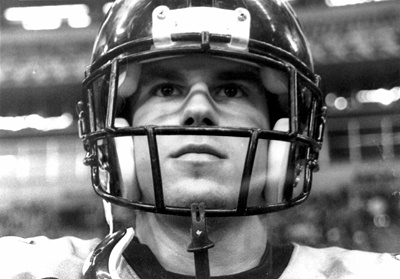All Nonfiction
- Bullying
- Books
- Academic
- Author Interviews
- Celebrity interviews
- College Articles
- College Essays
- Educator of the Year
- Heroes
- Interviews
- Memoir
- Personal Experience
- Sports
- Travel & Culture
All Opinions
- Bullying
- Current Events / Politics
- Discrimination
- Drugs / Alcohol / Smoking
- Entertainment / Celebrities
- Environment
- Love / Relationships
- Movies / Music / TV
- Pop Culture / Trends
- School / College
- Social Issues / Civics
- Spirituality / Religion
- Sports / Hobbies
All Hot Topics
- Bullying
- Community Service
- Environment
- Health
- Letters to the Editor
- Pride & Prejudice
- What Matters
- Back
Summer Guide
- Program Links
- Program Reviews
- Back
College Guide
- College Links
- College Reviews
- College Essays
- College Articles
- Back
Money Is Sports
America’s sport is football. Every Sunday families gather around their flat screen televisions to watch their team take on an inferior or superior opponent. And every Thanksgiving more time is spent watching football, rather than giving thanks around the table. Football acts as the nation’s leading source of entertainment, but in the meantime it’s also exploiting taxpayers.
The Dallas Cowboys call AT&T Stadium home. The stadium features a retractable roof, seats 80,000 people, and has built in nightclubs. Cowboys’ quarterback Tony Romo plays in the city-owned stadium that is appraised at $1 billion. Typically, Cowboys owner Jerry Jones would pay over $6 million in property taxes. How does Jones, whose net worth is $2.7 billion, get exempt from paying this tax? More importantly, who is responsible for paying AT&T Stadium’s property taxes? Of course, that tax would fall to the residents of Tarrant County who are far from being billionaires.
Gregg Easterbrook, a football commentator for ESPN and the NFL Network, says, “Nearly all NFL franchises are family-owned, converting public subsidies and tax favors into high living for a modern-day feudal elite.” But that couldn’t be true, right? Doesn’t the NFL care about its fans? Harvard University professor, Judith Grant Long, calculated that “70 percent of the capital cost of NFL stadiums has been provided by taxpayers, not the NFL owners.” She further explains, “Many cities, counties, and states also pay the stadiums’ ongoing costs, by providing power, sewer services, other infrastructure, and stadium improvements.” The New York Giants, New York Jets, and New England Patriots are the only teams to have paid at least three-quarters of their stadium costs.
Easterbrook explains, “The fact that games images created in places built and operated at public expense can be privatized by the NFL inflates the amounts kept by NFL owners, executives, coaches, and players, while driving up the cable fees paid by people who may not even care to watch the games.”
Over the summer, I participated at a Pre-College program at Marist College where I took a sports communications course. For hours each day, my professor lectured on about how sports have turned into a money driven business. Surprise, surprise. First there was the 1961 Broadcasting Act, which was then broadened in a 1966 statue. This gives leagues permission to conduct television-broadcast negotiations, acting as a monopoly of television rights.
Likely, that figure will only rise with time. Nearly every sports fan in America can be heard complaining when they receive their cable bill each month. The game is recorded, the network buys the product, and the network sells the product to the cable company. The product is then sold to the viewers at high additional costs to one’s cable bill. The NFL is the only major sports league where the league owns the network. CBS, DirecTV, ESPN, Fox, NBC, and Verizon will be handing over $4 billion for rights to the NFL to broadcast games. Likely, that figure will only rise with time. The NFL and other leagues are more concerned about increasing owners and team’s net worth, than worrying about how much money fans have in their pockets.
Sports entertainment has turned into corruption. As a dedicated sports fan, it grinds my gears when I have to dish out $250 for NFL tickets, in addition to $50 parking fees and $30 worth of concession food. Let’s not forget, I also have to purchase a clear bag that can cost up to $20 following the implementation of the new Stadium Bag Policy.
All in all, sports are money and money is sports.

Similar Articles
JOIN THE DISCUSSION
This article has 0 comments.
